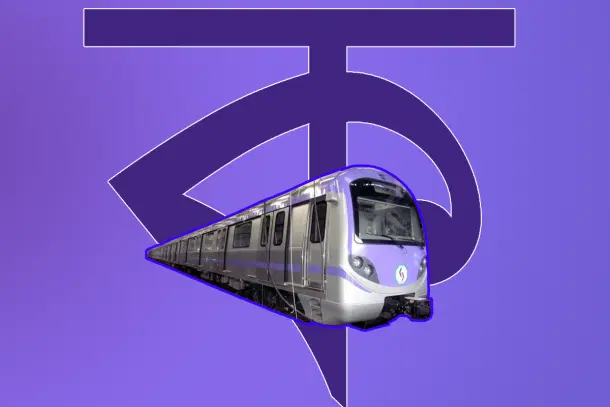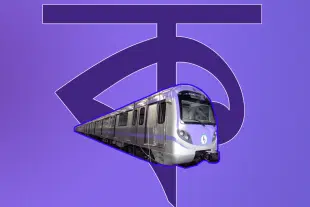News Brief
Kolkata Metro To Ensure Uninterrupted Service Despite Power Outage With Battery Energy Storage System For Passenger Safety
Arjun Brij
Feb 18, 2025, 12:34 PM | Updated 12:34 PM IST
Save & read from anywhere!
Bookmark stories for easy access on any device or the Swarajya app.


In a significant move to bolster commuter safety and operational efficiency, Kolkata Metro Railway is set to install a state-of-the-art Battery Energy Storage System (BESS) at the Central Station substation, reported Financial Express.
Designed to ensure seamless train movement during power outages, the system will support uninterrupted services on the 16 kilometre underground section of the Tollygunge-Dumdum corridor, officials confirmed on Monday (17 February).
The cutting-edge system, integrating inverters and advanced chemistry cell (ACC) batteries, will enable trains to travel at 30 km/h in the event of a power failure, ensuring that passenger-laden coaches are safely transported from tunnels to the nearest station.
This first-of-its-kind initiative, part of the 28 kilometre Blue Line corridor (Dakshineswar-New Garia), will significantly enhance passenger safety while also optimising energy management, metro authorities stated.
By supplying 4 MW of power from a single source to multiple stations along the North-South Corridor via a 33 KV network, the BESS will prevent passengers from being stranded due to unexpected power disruptions.
The project, financed by the Railway Board, is expected to be operational by May. Following its installation at the Central Station substation, metro authorities plan to implement seven additional BESS units with a capacity of 1 MW each, incorporating a Traction Energy Storage System (TESS) in upcoming substations.
Beyond serving as a backup during outages, the BESS will function as an energy reserve, storing power overnight for use during peak daytime hours.
It will also play a crucial role in emergency situations such as fires, providing electricity for tunnel ventilation, track exhaust systems, and platform air circulation.
The Metro Railway anticipates that these technological advancements will not only enhance passenger safety but also yield substantial cost savings, with estimates suggesting up to Rs 7 crore could be saved over the system’s lifetime.
Arjun Brij is an Editorial Associate at Swarajya. He tweets at @arjun_brij





